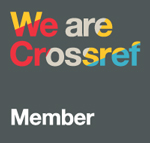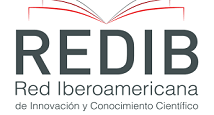The school, one of the first formal places for the first immoral actions
DOI:
https://doi.org/10.51440/unsch.revistaeducacion.2023.22.466Keywords:
Moral education, moral values, ethics, school, childrenAbstract
The first social representation, more official and protocol, that children have is addressed and set at school. It is there where they exercise their first formal functions, typical of their age, changing its natural role for a formal and more interactive one. In this way, the child children are renamed the student children. And it is in this representation and social dynamism where they face endless moral questions. What motivations direct children to commit acts against morality? This is the question that guides our line of research. Five factors are considered: little experience, fear and coercion, masculinity, the absence of pedagogical accompaniment, the level of the primary school grade.
Downloads
References
Aristóteles. (2007). Política. Porrúa.
Bruner, J. (1997). La educación, puerta de la cultura. Machado Grupo de Distribución.
Buxarrais, M. (2009). Por una ética de la compasión en la educación. Teoría De La Educación. Revista Interuniversitaria, 18, 201-227. https://revistas.usal.es/index.php/1130-3743/article/view/3218/3243
Calzadilla, R. (2004). Paidética: ética para niños. Sapiens. Revista Universitaria de Investigación, 5(2), 37-52. https://www.redalyc.org/pdf/410/41050204.pdf
Comte, A. (1979). Filosofía positiva. Prefacio del Catecismo positivista. Porrúa.
Cyrulnik, B. (2009). Autobiografía de un espantapájaros. Gedisa editorial.
Díaz, A. (2006). La educación en valores: Avatares del currículum formal, oculto y los temas transversales. Revista Electrónica de Investigación Educativa, 8 (1), 1-15. http://www.scielo.org.mx/scielo.php?script=sci_arttext&pid=S160740412006000100001
Durkheim, E. (2001). Las reglas del método sociológico. Fondo de Cultura Económica.
Escámez, J., García, R., y Pérez, C. (2003). La educación moral ante el reto de la pobreza. Teoría De La Educación. Revista Interuniversitaria, 15, 185-212. https://dialnet.unirioja.es/servlet/articulo?codigo=938904
Freud, S. (1992). Obras completas XXI. Talleres Gráficos Color Efe.
García, F. y Peña, G. (2018). La investigación como estrategia pedagógica para la convivencia escolar. Cultura. Educación y Sociedad 9(1), 121-133. https://revistascientificas.cuc.edu.co/culturaeducacionysociedad/article/view/2015
Gutmann, M. (1998). Traficando con hombres: la antropología de la masculinidad. Revistas de Estudios de Género La ventana 8, pp. 47-99 https://www.redalyc.org/pdf/884/88411133004.pdf
Levinas, E. (2002). Totalidad e infinito: ensayo sobre la exterioridad. Ediciones Sígueme S.A.
Lipman, M. (1992). Filosofía en el aula. De la Torre.
Martínez, M., Puig, J., y Trilla, J. (2003). Escuela, profesorado y educación moral. Teoría De La Educación. Revista Interuniversitaria, 15, 57-94. https://revistas.usal.es//index.php/1130-3743/article/view/3026
Mujica, J. (2005). Las primeras batallas: poder y transgresión en la escuela primaria. GRADE-Fundación Ford.
Nietzsche, F. (2002). Humano, demasiado humano. Melsa.
Nietzsche, F. (2005). La genealogía de la moral. Alianza editorial.
Organización de las Naciones Unidas para la Educación, la Ciencia y la Cultura [UNESCO]. (2020, 5 de octubre). Docentes, líderes de la transformación educativa en el contexto de la crisis por COVID-19. https://es.unesco.org/news/blog-1-docentes-lideres-transformacion
Ortiz, L. (2014). Ética, trabajo y examen. La formación de la disposición escolar en medios sociales desfavorecidos. Perfiles Educativos, 36(143), 86-104. http://www.scielo.org.mx/scielo.php?pid=S018526982014000100006&script=sci_abstract
Ortega, P. y Mínguez, R. (2007). La compasión en la moral de A. Schopenhauer. Sus implicaciones pedagógicas. Teoría De La Educación. Revista Interuniversitaria, 19(1), 117-137. https://revistas.usal.es//index.php/1130-3743/article/view/3249
Piaget, Jean (1987). El criterio moral en el niño. Diagráfic.
Piaget, Jean (1997). Psicología del niño. Ediciones Morata.
Rousseau, J. (2000). Emilio o la educación (libro primero). El Aleph.
Rousseau, J. (2014). El contrato social. Plutón Ediciones.
Rubio, L. (2007). Cultura moral y perfil de valores del centro educativo. Teoría De La Educación. Revista Interuniversitaria, 19(1), 99-115. https://revistas.usal.es//index.php/1130-3743/article/view/3246
Schopenhauer (2002). Los dos problemas fundamentales de la ética. Siglo XXI.
Touraine, Alain. (2006) ¿Podremos vivir juntos?: iguales y diferentes. Fondo de Cultura Económica.
Vázquez, V. y Escámez, J. (2010). La profesión docente y la ética del cuidado. Revista Electrónica de Investigación Educativa, (Número especial), 1-18. http://www.scielo.org.mx/pdf/redie/v12nspe/v12nspea1.pdf
Ventura, M. (2018). Contra la ética: ¿por qué somos inmorales? CICAGE.
Vila, E. (2005). Mundo de la vida y cultura: la educación como acción ética e intercultural. Teoría De La Educación. Revista Interuniversitaria, 17, 81-96. https://revistas.usal.es//index.php/1130-3743/article/view/3110
Zúñiga, M. y Ansión, J. (1997). Interculturalidad y Educación en el Perú. Foro Educativo.
Downloads
Published
How to Cite
License
Copyright (c) 2023 Ulises Ventura Montes

This work is licensed under a Creative Commons Attribution-NonCommercial 4.0 International License.





















